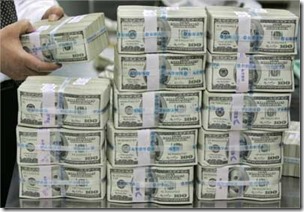
It is grossly miscommunicated and misapprehended that call rates from international destinations to Pakistan increased because of some new or additional taxes, and that due to these taxes our national exchequer will get benefited every year.
Media, politicians and government authorities are calling it a “New Tax” on international incoming calls.
However, this is not the case.
International incoming call rates to Pakistan were increased due to increase in call rate and APC. All this money (due to increased call rates and APC) goes to LDI operators and hence terming it as an income for our national exchequer isn’t correct.
Pre ICH and Post ICH International Rates:
To explain this further to our readers, let’s have a look at pre-ICH and post-ICH rates for international callers:
| Before ICH | After ICH | |
| AAR | 12.5 cents / minute | 17.6 cents / minute |
| ASR | 6.25 cents / minute | 8.8 cents / minute |
| LDI’s Share | 5.0 cents / minute | 5.9 cents / minute |
| APC | 1.25 cents / minute | 2.9 cents / minute |
To better understand above table, let’s have a look at definitions for the terms used in it:
AAR or Approved Accounting Rate: The call rate that international caller has to pay. This is the rate that international caller will pay to distant operator (say to AT&T) per minute for making calls to Pakistan.
ASR or Approved Settlement Rate: This is the amount of money (usually half of AAR) that will go to local LDI operator for receiving calls in Pakistan.
Out of this money LDI operator may pay interconnect charges to local loop operator if call is terminated to other than LDI’s own network. (If you don’t know what a local loop is then keep reading, we will explain it below).
APC or Access Promotion Charges: ASR, as hinted in above paragraph, is then further divided into two parts. One is LDI’s share and second is APC. LDI’s share, as name suggests, will go to LDI operator. While in case of APC there can be two scenarios, i.e. local operator is either fixed line or cellular.
- In case of fixed line, APC goes to local operator.
- In case of cellular, APC goes to Universal Service Fund.
Please note that All these rates, that are AAR, ASR and APC are defined by PTA and can be changed with authority’s approval.
For you to completely understand the network chain, there can be three kinds of operators involved in originating and terminating an international call.
- Distant operator
- Local LDI operator
- Local Loop operator
Distant Operator: As the name suggests, distant operator will be the foreign operator that is responsible for originating calls.
LDI Operators: Local LDI operator are responsible for receiving international incoming calls in Pakistan. There are total of 14 LDI operators in Pakistan which decided to suspend their international circuits to allow PTCL for receiving all international incoming calls. List of all LDI operators in Pakistan is available here.
Local Loop Operator: Local loop operators are allowed to use their communication circuits to transmit/receive calls with-in Pakistan and with-in defined regions. Nayatel, for example, is a Local Loop operator which operates its network in Islamabad/Rawalpindi. List of Local Loop operators in Pakistan is available here.
Now, when we have defined all terms and operators involved in terminating an international calls, here are possible scenarios for call routes:
- Distant Operator-> Local LDI Operator-> Local Loop operator.
- Example: AT&T –> Wateen Telecom –> Nayatel
- Distant Operator –> Local LDI Operator –> Cellular Network
- Example: AT&T –> Wateen Telecom –> Zong (Zong is not given an LDI license)
- Distant Operator –> Local LDI Operator –> Same LDI Operator which has Local Loop License as well
- Example: AT&T –> World Call –> World Call
In above given examples, it is clear that LDI operator, after receiving calls from distant operator, routes calls to local loop operator, if calls are not destined for its own network.
After implementation of ICH, as mentioned above, all LDI operators suspended their international circuits and whole country was relying on PTCL to receive international incoming traffic.
Now getting back to above given table.
ICH consortium was to get all the money (LDI’s share + APC), except that if calls were to be terminated on cellular networks. In such case APC was to be given to USF. Money going to USF is again not an add-on for our national exchequer. Money for USF is to be used for telecom development and can’t be used by the government.
All of the revenues, that this ICH consortium is destined to make, will go to LDI operators that are part of consortium with their respective pre-defined share (based on their pre-ICH market share).
As it is clear from our this discussion that there is no new tax, but increase in APC and ASR that does not go to national exchequer at all.
Again, all the money that will be generated through these increased call rates will go to LDI operator’s pocket. Who may or may not bring this money to Pakistan, since there are LDI operators who are foreign based.
Just in case if you don’t know, Lahore High Court has suspended the policy directive of MoIT for implementation of ICH and hence ICH is no more operational as of today. Court said that ICH will remain suspended till next hearing.

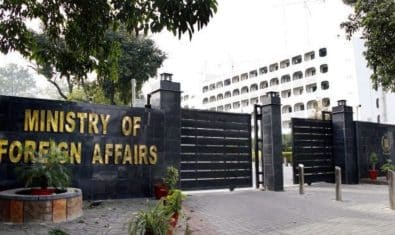
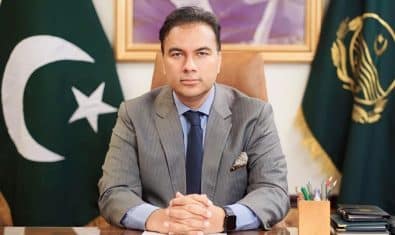

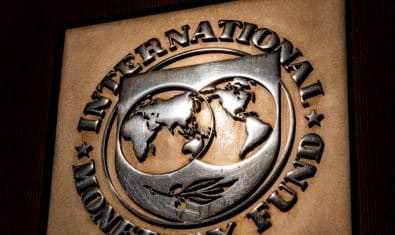
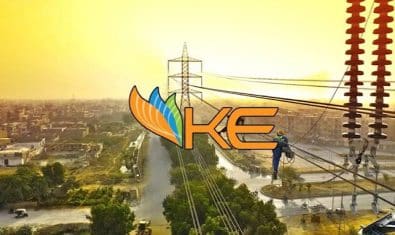




















if ICH is suspended then why we are not getting benefit of that… call rates are still the same…
may be because ICH is only suspended not dissolved.
True. There is no benefit so far at our end. Even dissolved, I do not think the operators here will take any quick actions to decrease the rates as quick as they took at the time of increment in prices. Nevertheless, a very informational piece for understanding the whole scenario!
International incoming rates will get revised only after withdrawal of rates from PTA.
PTA, as mentioned in the post above, determines the AAR, ASR and APC rates. In addition to suspension of ICH, PTA will have to revise its AAR, ASR and APC rates to give relief to international callers.
FYI: Here’s the letter that PTA needs to revise: http://i49.tinypic.com/34opiyt.jpg
Hats Off to Amir Atta. Indeed a very informative Article!
Full of lies and false stats. it is unfortunate that people like this writer make fool of common people just to make their article attractive.
ICH will give 2 cents per minute to PTA. Earlier, LDI operators had to give 0.35 cents to PTA.
Under which head these 2 cents will go to PTA? I am open for corrections… But can you please explain your point?
USF Fund. USF is (APC – CPP) which is given to PTA. previously APC was 1.25 cents, now its 2.9cents. CPP is same as 90 paisas. so PTA gets 2 cents per minute now in USF.
Okay I get you now. But APC-CPP goes to USF, not to PTA.
PTA just collects the money and forwards it to USF. This money is used by USF for development and can’t be used by government or PTA on its own.
USF is used by the government for providing telecom infrastructure to far flung and less served areas. it is used for the benefit of people of Pakistan.
More importantly it doesn’t go to LDI operators as you claimed that all money is going to LDI operators.
Yes its used for the telecom development in far flung areas of Pakistan (sarcastically), probably that’s why PKR 45 billion (already deposited in banks) isn’t used for the development. I wonder for which purpose that money will be used….
Again, USF uses this money, not the government or PTA. USF is controlled by an independent board and doesn’t come under any government control (by law at least).
BTW thanks for agreeing that APC goes to USF and not to PTA.
P.S. USF doesn’t rely fully on APC for generating funds. It also gets 1.5 percent yearly revenues from telecom companies for the development you have mentioned.
Dear, we are not discussing how our governments misuse national exchequer.
what we both are agreeing here is that out of 8.8 cents, 2.9 cents doesn’t go to LDI operators but mobile companies and USF (which is practically in control of government).
I request that you consider changing the subject of this article.
I haven’t changed my stance, which, according to your earlier comment was false and based on lies. That was an exaggerated expression I believe.
I have clearly mentioned about the APC part and USF thing.
Just to add further, USF doesn’t get APC on every incoming call. Just the international calls landing on mobile operators go to APC.
Finally, I will repeat here again: the REVENUES DOES NOT GO TO NATIONAL EXCHEQUER.
It goes to USF, which is not a government fund. Its NOT GOVERNMENT. GOVERNMENT HAS NOTHING TO DO WITH USF FUND.
To conclude, USF money is ultimately used by telecom operators for service subsidization. Look at Wateen and PTCL that how they earning money due to USF.
LIE no. 1 : all money is going to LDI.
now you agree that out of 8.8 cents, 2.9 cent isnot going to LDIs.
LIE no. 2 : LDI margin was 5 cents before ICH.
till 30th september, most LDIs were selling at zero margin ( ASR = 1.25 cents) . and that’s why some of them they became defaulters of USF.
i second Mr Qazi absloutely ldis defaulters just becasue they were selling at zero margin and foreign operators get benifted by this and Mr aamir try to understand that what is USF and how they work not directly goverment fund but indirectly under govt of pakistan and working for development of IT structure of remote area’s of pak
Defaulters and now crooks!
i tried posting other story but this is very related.
Please don’t forget. These companies owe billions to Pakistani Exchequer in unpaid APC contributions and are still operating
“Yaseen said 4B Gentel International owes Rs992 million, Wise Communication Systems Rs684 million, Worldcall Telecom Rs2.9 billion, Multi Net Rs2.7 billion and Redtone Telecommunications Rs1.6 billion.”
http://tribune.com.pk/story/204147/a-scam-in-the-making-pta-directed-to-be-vigilant-of-long-distance-operators/
PTA even won the case against these operators in the Islamabad courts
http://www.pta.gov.pk/index.php?option=com_content&task=view&id=1708&catid=92&Itemid=739
http://www.nation.com.pk/pakistan-news-newspaper-daily-english-online/business/02-Jul-2011/PTA-wins-cases-against-LDI-operators
Here are the details of all outstanding payments, that are to be made by LDI operators to PTA for APC:
PTCL: Rs. 183 Million
WorldCall: Rs. 1,675 Million
Red Tone: Rs. 3,900 Million
ADG: Rs. 399 Million
WiTribe: Rs. 350 Million
Telecard: Rs. 2,615 Million
Call Mate: Rs. 243 Million
Dancom: Rs. 3,645 Million
Wisecom: Rs. 766 Million
Circlenet: Rs. 3,445 Million
Telenor: Rs. 5 Million
Wateen: Rs. 1,919 Million
Link Direct: Rs. 10 Million
4B Gentel: Rs. 924 Million
Multinet: Rs. 4,469 Million
Total: Rs. 24 Billion
I think it is some amount less because Omantel has paid on behalf of Worldcall some amount. But you should get confirmed source and make it public so that these rascals cannot get away with it.
But how distant operator know to which LDI to route a call. I mean if there are different LDI operator then who decides which call will land on which LDI
Before ICH, all LDI operators had agreements (depending on their sales ability) with foreign operators to receive international calls.
Hence, those agreements decided which LDI operator will receive a particular call.
On an additional note, these LDI operators (local and foreign) usually get into two-way contract, hence for outgoing calls they use agreed foreign operator and vice versa.
In case of fixed line, APC goes to local operator.
In case of cellular, ACP goes to Universal Service Fund.
There is a typo in second sentence. It must be APC not ACP. See two points under “APC or Access Promotion Charges” heading.
Thanks, corrected.
as per your attached pta letter, APC means access promotion contribution.
aamir7
What is LDIs and other telcos shares in ICH money?
very informative Article!
why only in Pakistan?????we are expats no body has this suffering of ICH only Pakistanis
Still waiting for the rates to come down.. It has been much expense ever since this decision has been taken by LH.. Gulf is already expensive for calling, but now PTA has made it more difficult for expatriates to make calls to Pakistan to their relatives.
Regards,
Amjad
ICH is actually a huge scam to benefit foreign owned LDI companies and
their investors which would result in outflow of billions of dollars from
Pakistan destroy Pakistan’s precious foreign reserves and reducing the amount
of Remittance overseas Pakistani send to Pakistan .
———-
Long distance international licenses (LDI) were given to companies by PTA in 2004 to bring competition for PTCL, instead they all grouped together bribed out Politicians and Government Officials in PTA, MoIT or perhaps offered them share in their LDI companies and managed to form one single monopoly company called International Clearing House (ICH) and worked out a quota deal with PTCL under guidance from PTA/MoIT . Now just like before 2004, only PTCL handles all international calls , while Rest of the LDIs are doing nothing , they will just collect
cheque as per their quota , amounting to billions each month from MoIT / PTA and send those billions in precious foreign exchange to their parent companies overseas. These extra billions is precious foreign reserve money from overseas Pakistanis which now instead of staying in Pakistan goes to these foreign companies
———–
If PTA / MoIT wanted to increase government revenue by increasing call rate , they would simply increase Tax (USF) payable by the LDIs . There was no need for grouping of LDIs into single company/consortium . Thefact is forming of ICH will only bring benefits to the LDI operators as most of the money from price increase will go to these foreign own LDI Companies .
————
Somebody must investigate how these LDIs managed to form an illegal consortium and why PTA , MoIT are supporting them despite objection from CCP. Why
PTA/MoIT is being so generous by giving billions to these LDI operators? These
LDI licenses were awarded as part of telecom deregulation to have competitive
environment . The licenses have no such provision to group together to form one
monopoly consortium nor fixing rate. Therefore licenses of LDI operators should be canceled for trying to do illegal activities , spreading corruption and damaging Pakistan .
Here is a list of 12 out of 14 LDIs and their foreign owners. I dont have info on others
1. Link Direct International Pakistan- Owned by Egyptian investors
——-
2. Worldcall LDI – Owned by Oman Investors
——-
3. Redtone Telecom Pakistan – previously owned by Redtone Malaysia, now owned by , Quantum Global comprising of many Indian , Lebanonese investors
——-
4. Wi-tribe – owned by Qatar Investors
——-
5. Wise Communication Systems , Owned by International Telecommunication Service (SRL), Italy
——-
6. Dancom Pakistan- previously owned by Dancom Group Malaysia now owned by Egyptian investors
——-
7. Telenor Pak LDI Communications – Telenor Group Norway
——-
8. Wateen Telecom Pakistan – owned by AbuDhabi Group , UAE
——–
9. Multinet Pakistan – owned by Axiata Group , Malaysia
——–
10. Circlenet Communication LDI owned by Circle Net UAE and foreign
investors
———
11. Telecard owned by Sanjiv Ahuja , Augere Holdings , Indian and
other foreign investors
——–
12. ADG LDI owned by Dollar East Exchange Company and unknown number of
investors
amazing piece of work